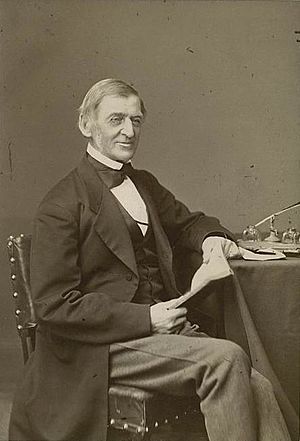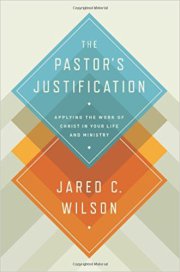
English: Photo of American Transcendentalist, writer, and minister Ralph Waldo Emerson. (Photo credit: Wikipedia)
Emerson has long been known as a sort of patron saint of originality in American culture. The primary location for this message is his essay “Self-Reliance” (1841). The argument of that essay would seem to be, from the title onward, that the individual and his/her genius is of utmost importance. There are many famous lines and passages in the essay that suggest this, including, perhaps most famous: “imitation is suicide.”
Believe it or not, that line and some others from the essay were used in a Reebok commercial in the 1980s. Reebok was just starting and trying to knock Nike–the shoes that everyone else was wearing. The logic was, strangely: be yourself and buy our shoes; don’t imitate Nike (imitate us).
Given this tradition of Emersonian originality, what should we make of Emerson’s later essay, “Quotation and Originality,” in which he declares surprisingly, “all minds quote”? Is this view of writing and reading and, more broadly, thinking, as some form of quotation a contradiction of his earlier views of self-reliance and “creative reading?” Does this break from the earlier essays, or somehow extend the vision?
Emerson, mid-way through the essay, seems to admit his own contradiction when he begins to voice a challenge to what he has been saying of quotation. That voice sounds much like the Emerson from “Self-Reliance”: “Quotation confesses inferiority.” Is this just a case of Emerson contradicting himself, being willfully or whimsically inconsistent? (In “Self-Reliance he claims famously: “A foolish consistency is the hobgoblin of little minds.”)
Emerson, however, has always had a more complicated vision of originality–much as the notion of originality in writing and thinking is more complicated than conventionally presented in schools. Emerson’s vision of original quotation speaks to the essay tradition and its philosophy of relating the personal and ordinary in the world of the writer to the public world of the reader. A good essayist needs to work through quotation, and consider the relation between the quotation and originality of thinking. A better context for understanding the tension between originality and quotation, I suggest, is a rhetorical tradition Emerson was familiar with. The rhetorical context for this essay, for any essay Emerson might have in mind, opens up contradiction as a strong potential for an essay, when handled honestly. Contradiction becomes counterargument; the logic in the essay moves (is not fixed), is dialectical or dynamic. Think, as Emerson liked to think, of the natural analogy of polarity. And so thought, and thinking in writing, when it accurately reflects its contexts as a natural process, moves between positive and negative poles. All things, as Emerson says, are in flux.
Composition and decomposition are the natural poles. Recomposition is the form of writing that generates from this. Reading such writing, as we also see by the end of the essay, participates in the recomposition by being inventive. Invention is a concept of classical rhetoric that speaks to the paradoxical but necessary tension between the originality of our ideas and argument and the given, quoted, borrowed structures and contexts that those ideas must live in. There is no pure originality. Of course, this line from a late Emerson essay (1868) takes us back to Emerson’s “American Scholar” thirty years before: “One must be an inventor to read well.” Thus Emerson quotes himself originally.
How does Emerson’s vision of recomposition inform David Shields’ project in Reality Hunger? How does Emerson’s vision of original quotation compare to your emerging philosophy of the essay?
My annotated (inventive? quotational?) reading of “Quotation and Originality”
Advertisements Like this:Like Loading... Related




